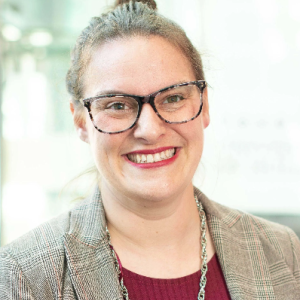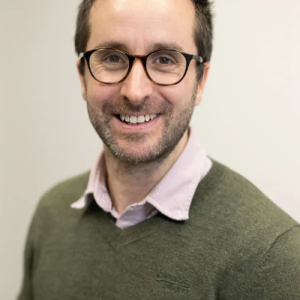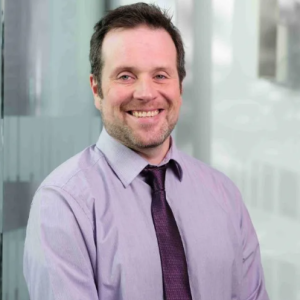
Chartered ABS responds to the DfE’s technical consultation on the International Student Levy
The Chartered ABS has submitted its response to the Department for Education’s technical consultation on the International Student Levy.
- Home
- / Insights
- / Knowledge sharing
- / What first-year business students are telling us
What first-year business students are telling us

Authors

Claire Carr CMBE
Director of UK Recruitment, Lecturer in Organisational Behaviour, Hull University Business School

Dr Thomas Hoyland
Head of the Students Aspirations and Inclusivity Lab, Reader in Organisational Behaviour, Hull University Business School

Adam Pearce-Craik
Teaching Enhancement Officer, Hull University Business School

Dr Ryan Handley
Programme Director BA (Hons) Business Management and pathways, Lecturer in Organisational Behaviour, Hull University Business School
The debate around the value of a degree continues, with questions about its relevance to future careers. But perhaps the real issue isn’t whether a degree is essential, but how it can serve as a launchpad for the careers students genuinely want and that industry truly needs.
At the Hull University Business School (HUBS), we’ve found that the most valuable insights don’t come from metrics or market reports, but directly from our students. We regularly review the National Student Survey (NSS) comments, run surveys, and gather feedback, but this year we took a different approach.
In a first-year, first-semester module, we invited undergraduate business students to write reflective personal brand statements —open, honest accounts of who they are, what they value, and where they hope to go. Reading hundreds of these reflections revealed a rich tapestry of perspectives and ambitions.
What we heard when we listened closely
Students across Finance, Entrepreneurship, Marketing, Economics, Logistics, and more shared their stories. Their backgrounds were diverse: some arrived with significant work experience; others were just starting out. Some had travelled widely; others had not. This diversity shapes their self-perception and what they need from us.
Their aspirations are equally varied. Some are passionate about sustainability, social enterprise, or ethical leadership. Others are focused on financial stability or entrepreneurial success. Some are confident; others are still finding their feet.
Distinct groups emerged:
Financially focused students seek stability and high-demand roles, often already managing budgets and tracking goals. With targeted mentoring and financial literacy, our degrees can sharpen their edge and accelerate their path to roles such as financial analyst or commercial strategist.
Entrepreneurial students are driven by independence and ambition, with some already running side businesses. Our curriculum should equip them to scale, pivot, and thrive as founders and innovators.
Community-oriented students are motivated by impact, volunteering, or engaging in local initiatives. Our degrees can help them turn values into meaningful careers in CSR, consultancy, or sustainable enterprise.
Exploratory students value stability but are still discovering their direction. Through industry exposure and reflective goal setting, we can help them build confidence and uncover new possibilities.
These insights are helping us rethink how we support students in shaping their own journeys.
Redefining leadership and success
A notable shift is how students view leadership. It’s no longer the default aspiration. Many are interested in autonomy, freelancing, or work that fits around their lives. The gig economy is not just a trend; it’s a mindset for many.
While some still see business as transactional, others are driven by values such as community, resilience, and integrity. These are not just buzzwords, but the lens through which students view their place in the world.
Aligning curriculum with student and business needs
We mapped these themes against our teaching approach and found strong alignment. Students want relevance and authentic experiences. They seek learning that connects with who they are, what they care about, and what will help them succeed.
Our degrees must deliver visible value; not just at graduation, but every day; through lifelong learning, micro-credentials, and alignment with industry needs. Business schools attract diverse learners, including those from non-traditional backgrounds. All students need to see how our programmes build towards something real.
This raises important questions for the sector: Are we offering the right flexibility? Are we enabling students to explore different pathways early enough? Are we recognising and responding to the diversity of our students?
Here at HUBS, we are building on strong theoretical foundations, recognising students’ perceptions and understanding of industry needs, while creating opportunities for higher education to challenge and develop those perceptions and skills.
Looking ahead
As our new cohort arrives, we are sharing our findings across the business school and refining our approach for the next academic year. Within the module this year, we are embedding more early interventions, offering students a clearer compass to navigate their options, and introducing more structured, supported, reflective goal setting; both in this module and beyond.
We are reimagining assessment as a dynamic tool to support personalised learning journeys and real-world readiness. These approaches will help students track their evolving aspirations and ensure their voices are heard.
If we want business schools to be truly inclusive, relevant, and future facing, we must start by listening, properly. When a degree is personal, purposeful, and aligned with both student ambition and industry need, it doesn’t just open doors. It accelerates the journey through them.
